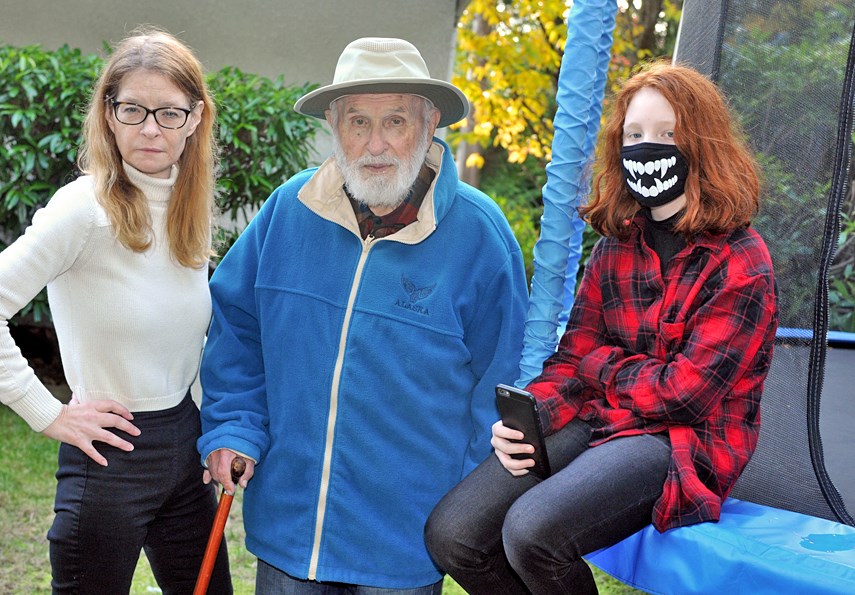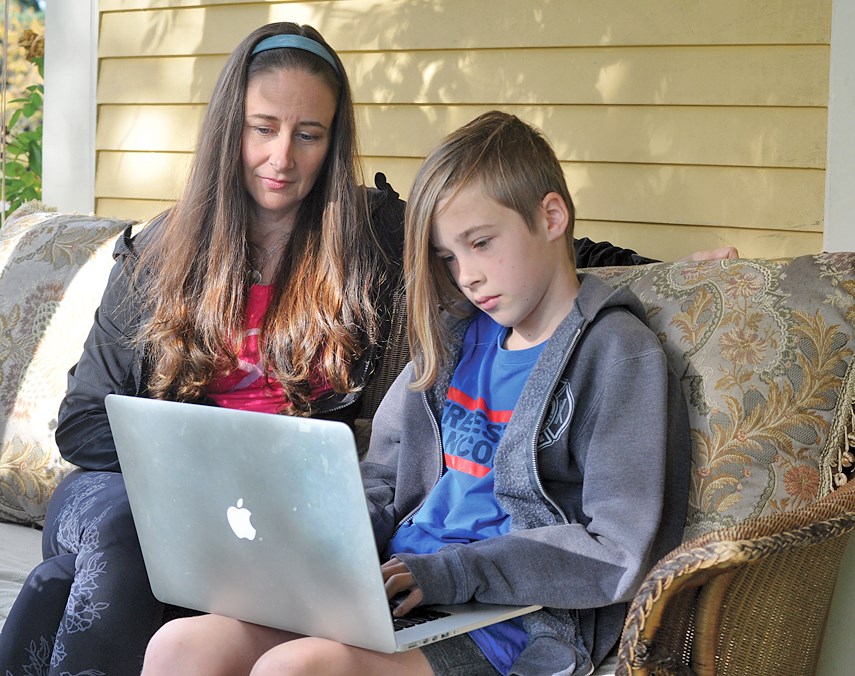North Shore parents whose kids are part of temporary transition programs that have allowed students to attend school online this fall say they’re anxious after being told students will have to go back to the classroom or find another option by the end of December.
Sherry Ghorbankhani Sadath, whose son attends Grade 3 at Caulfeild Elementary in West Vancouver, said she enrolled her son in the program because of her husband’s medical condition, which puts him at greater risk should he contract the virus.
That decision was reinforced, she said, when there were multiple COVID-19 infections among children at Caulfeild Elementary this fall, that in several cases were passed on to family members.
Anne Gavin is another Caulfeild parent who has chosen the temporary online program for her 11-year-old daughter. As a single mother who is also the sole caregiver for her 94-year-old dad, Gavin said she felt she also couldn’t take the risk of bringing the virus home.
“It’s a huge concern,” she said.
Now, however, families are being asked when their children will be going back to class – and told unless the province changes course, the program will end in December. Families who don’t go back to the classroom will have to arrange their own online schooling.
Ghorbankhani Sadath, who has started a Facebook group for families in the program, said she knows she isn’t the only one feeling stressed about it. She’s started a petition calling on both her own school district and the province to extend the program.
Shirlee Law, a parent in North Vancouver, says families there have similar worries. Law, a cancer survivor, whose lungs and heart were damaged by her cancer treatments, said she chose an online program for her own 11-year-old son to minimize the risk of bringing COVID-19 into their family.

Other parents have kids or other family members with complicated medical histories or are risk-averse because of previous medical traumas, said Law.
With case counts rising and no end to the pandemic immediately in sight, both Ghobankhani Sadath and Law said it’s not surprising many families still aren’t comfortable with the thought of going back to the classroom.
The West Vancouver school district currently has 390 elementary students in the temporary transition program and 50 students in the Grade 8 and 9 program.
In North Vancouver School District, there are about 360 children in the transition program – a number that has dropped from 480 at the beginning of the year. There are also just under 50 children in a “hospital homestay program” that usually provides schooling to just a handful of sick kids each year, but is also now providing school to students whose families have medical concerns – including Law’s son.
But extending temporary programs would require a significant change in direction from the province, say school administrators.
Schools are funded based on how many students are in classes. And while senior governments have provided extra money this fall, there’s no commitment to make that permanent, said Julia Leiterman, secretary treasurer of the West Vancouver school district.
Currently the program in West Vancouver is staffed by about 13 teachers and two education assistants, funded by the federal government.
North Vancouver schools superintendent Mark Pearmain told trustees recently that both the Ministry of Education and the provincial health officer have stressed the need to get students back to school and to find ways to live with the “new normal.
“Our goal is to encourage as many kids (as possible) to be able to come back and their parents to feel safe, sending their children back. We totally acknowledge that it’s a not an easy decision,” said Pearmain.
The North Vancouver school district does have an online “distributed learning” program that allows high school students to take courses online but does not offer a program for elementary school children. West Vancouver doesn’t offer an online program, and in the past has encouraged families who want to take courses online to sign up for them with other school districts.
Pearmain said there are also other reasons why school districts aren't encouraging online learning, especially for younger elementary school students.
Many younger children will have a hard time getting getting the same quality of learning online that they would in a classroom, he said.
North Vancouver school trustee Cyndi Gerlach said she’s troubled such a large number of students may be left without options by December unless governments change course.
“I’m struggling personally, with the potential of even 250 kids not having a place to go in January,” she said.



